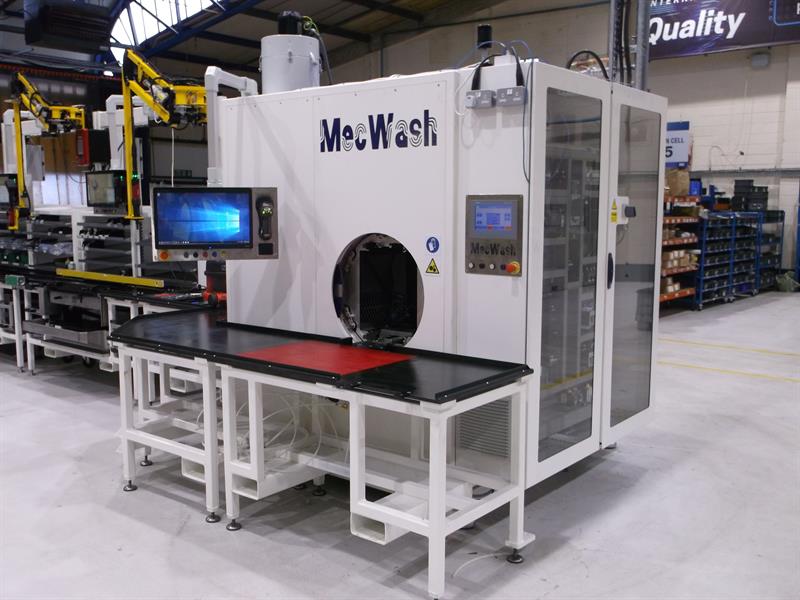In addition, MecWash has a range of national distributors and it also has dedicated company operations in two key markets, North America and China, each with its own distributor networks.
Bill Westbrook is the operations manager for MecWash Systems in North America. He joined the company in 2011, having previously worked for a MecWash distributor in Ohio and said business is beginning to pick up again.
He oversees all activities related to sales, marketing, customer service, distributor relations, machine maintenance, and commissioning of MecWash machines in the United States and Canada, and explains how MecWash serves the innovative manufacturing sector in the USA.
What’s the landscape of engineering and manufacturing in the area you cover?
There are five industries that we focus on predominantly: hydraulics, medical and dental, aerospace, automotive, and precision engineering. We find that each area of the country has a certain focus in machining.
Across New England, New York, and Pennsylvania, the customer base is primarily aerospace intermixed with medical and scientific manufacturing. Our customers in Illinois, Iowa, Wisconsin and Minnesota are hydraulics concerns, many doing large valve machining and assembly.
Of course, we have automotive customers in Michigan, Indiana, and Ohio. In the Rockies, we have hydraulics and medical customers. In the Northwest, we serve the largest dental equipment manufacturer in the world.
How have the cleaning requirements changed over the last ten years?
Cleanliness requirements are getting tighter. Ten years ago, a company might often have needed to clean and dry parts to a visually clean standard. Now, many companies have exacting cleanliness requirements dictated by maximum particulate size and/or gravimetric weight gain. The maximum particulate size can refer to a single callout, say maximum 500 microns in many hydraulics applications.
Or, it may include a maximum number of particles inside of defined micron classes, say maximum 100 particles in the Class of 50-100 microns, 50 particles in the Class of 101-200 microns, and so on. Our customers tend to be companies that manufacture high value parts, whereby scrapping a part because of a cleanliness failure becomes very expensive.

How would you describe the MecWash difference when it comes to cleaning standards?
Most customers need their parts to look immaculate. These same parts can be challenging to clean when they have many drilled passages, blind holes, and inner diameters that are very small. It can be difficult to rid a part of contamination when inner diameters are very tight and blind holes are long.
We manufacture high-performance, rotational aqueous cleaning systems and aqueous cleaning chemical under the MecWash name. Whereas 20 years ago, some manufacturers might have been sceptical about the power of aqueous cleaning to remove cutting oil and other oil-based contaminants off complicated parts, today, MecWash has devised numerous methods to clean complex parts to the highest cleanliness standards.
Furthermore, we are able to strip waste from the wash and rinse waters and recycle these fluids, so that our cleaning methods are environmentally sound and our cleaning systems inexpensive to operate year in and year out. The same can’t be said for our solvent-based competitors.
How does a typical week flow for you in the US?
In 2020, during the pandemic, my day-to-day was pretty free flowing. I did continue to travel approximately one week per month to visit with existing customers, but new business opportunities were confined to Zoom, phone calls and emails, like many people’s businesses. There was so much uncertainty.
Now in 2021, business is really picking up again. New customers are making enquiries, existing customers are expanding their business lines and adding more MecWash machines. It’s an exciting time with manufacturing on the rise, so much more so after undergoing a year like the last one.




